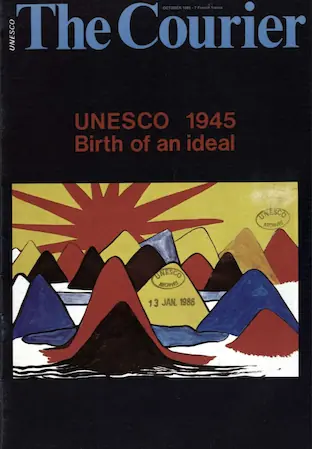
Emerging from the devastation of the Second World War, governments, intellectuals and educators came together to imagine a new international order built not only on political agreements but on the “intellectual and moral solidarity of humankind.” The issue traces the journey from the wartime Conference of Allied Ministers of Education, held in bomb-scarred London with governments-in-exile, through to the signing of UNESCO’s Constitution on 16 November 1945. It profiles the thinkers who shaped early UNESCO, including Ellen Wilkinson, René Cassin, Julian Huxley and Archibald MacLeish, and highlights the decision to place education, culture and science at the heart of building lasting peace.
The magazine also explores the wider historical context: the mood of Britain in 1945, the San Francisco Conference that founded the United Nations, and the intellectual movements that preceded UNESCO, such as the International Institute of Intellectual Co-operation. Together, these pieces paint a vivid picture of an organisation born from crisis, committed to combating ignorance, fostering understanding between peoples, and ensuring that the horrors of war would never be repeated. This resource offers an accessible window into the ideals, debates and human stories that shaped UNESCO’s foundation.






